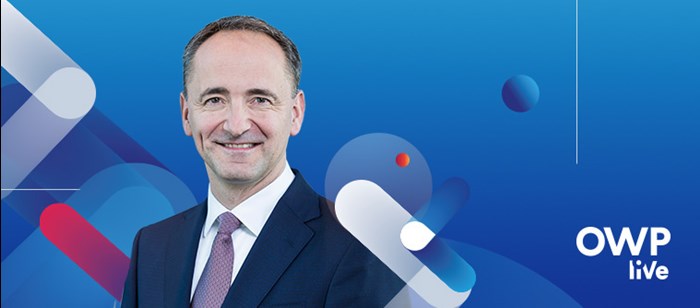Rather than to return to how things were before, companies must leap ahead into a better future, says Jim Hagemann Snabe.
The COVID-19 crisis has posed unprecedented challenges for business leaders and reframed the discussion around globalization, climate change and digitalization.
But “concerned optimist” Jim Hagemann Snabe – Chairman at Siemens AG, Chairman at A. P. Moller-Maersk and Vice Chairman at Allianz SE – says that if leaders confront outdated assumptions, organizations can dare to chart a new course that will lead to a better future for all.
In his OWP liVe keynote address “Renewal, not return: leadership in times of COVID-19”, Snabe drew on his long experience as a manager, including 25 years in the IT industry, to explore the implications for leaders at this critical crossroads.
“In a world that was already undergoing rapid change, the crisis is forcing executives to reflect on what kind of society we want to create,” said Snabe. “What role should business play in the future?”
Today there is a significant inflection point, much like the inflection point that occurred as Snabe finished his business studies in 1989.
“The Berlin Wall fell that year and you could argue that globalization had dramatically accelerated,” says Snabe. “The world wide web was invented, creating the digital revolution. This enabled the connecting of people and things in ways we couldn’t have imagined earlier.”
The inflection point that the world is at currently is the moment to stop and reflect on responsible leadership, and move forward in a way that is beneficial for all people.
The leader’s trifecta
“Digitalization, geopolitics and climate are the three points on every leader’s today’s agenda,” explains Snabe. “COVID-19 comes on top of that and it has changed the dialogue.”
With many countries phasing out confinement and reopening for business, there is a new paradigm at play. Snabe argues that COVID-19 should be a catalyst under these three dimensions.
“Leaders must realize that the traditional leadership model won’t work anymore,” said Snabe. “The increased speed of change means we can’t make detailed plans as we did before.”
Speaking directly to the COVID-19 pandemic and its effect on world economies, he continues: “Perhaps we will retract from globalization. This would be a big mistake because globalization is the only way to create equal opportunities for everyone on this planet. The better solution is to become more resilient.”
Quoting statistics from the World Economic Forum, where Snabe serves as a member of the Board of Trustees, he says there is a major decrease of worldwide GDP.
“The WEF says that for every month of lockdown, the world’s annual GDP growth decreases by 2 percentage points,” Snabe says. “At the same time, positive developments have occurred – CO2 emissions are actually decreasing due to COVID-19, which is good because we need to reduce emissions by 7.5% annually until 2030 in order to prevent catastrophic consequences to the environment.”
Dreams & details, leadership for a new world
Snabe argues that adopting the right kind of leadership makes all the difference in times of crisis, and in the post-crisis recovery period.
“We need to have an ambition of what our organizations should become,” says Snabe. “But planning all the details is becoming more and more counterproductive.”
He believes the solution is translating strategy into a dream, rather than a plan – a vision of the role that a company will play in the future:
“Your dream must be one that’s grounded in the purpose of the company, uses its capabilities and puts it into action in a larger context. Inspire people to be part of a journey that might require personal change. And that way, you will unleash human potential,” he asserts.
Leaders must also select key details to focus on – the ones critical for tomorrow’s success. “The leadership challenge is not the accuracy of the plan but finding the areas where we don’t have perfect capabilities and need development,” Snabe says.
“We have to deliver in those areas in order to unlock the dreams.”
The good news is that the Dreams & Details leadership model works. “During my time at SAP, we doubled our value in four years by using this model of unleashing creativity,” explains Snabe. “Other industry giants like Siemens and A.P. Moller-Maersk have boosted creativity in the areas that really matter, adding unlimited value to their organizations.”
A climate of change
On climate change, Snabe believes we must also challenge assumptions. For example, the conventional wisdom that sustainability is a cost factor.
“If you assume that sustainability is good business, then suddenly it’s not about how you spend your money,” says Snabe, “but about how you make your money.”
While energy consumption is set to double in the next 20 years, Snabe points out that the amount of fossil fuel-based energy generation will shrink: “Coal-based power generation is actually more expensive than power from renewable energy sources already today. Solar and wind have become cheaper and the only thing holding us back is the assumption that the energy transition isn’t doable.”
Although he describes himself as a “concerned optimist”, Snabe posits that we are privileged to be leaders in this pivotal time.
“We will be able to tell our grandchildren about the moment in history where everything changed,” said Snabe. “I believe with this time comes an obligation that the future we’re building to is a better future – not just for our companies, but for society.”
